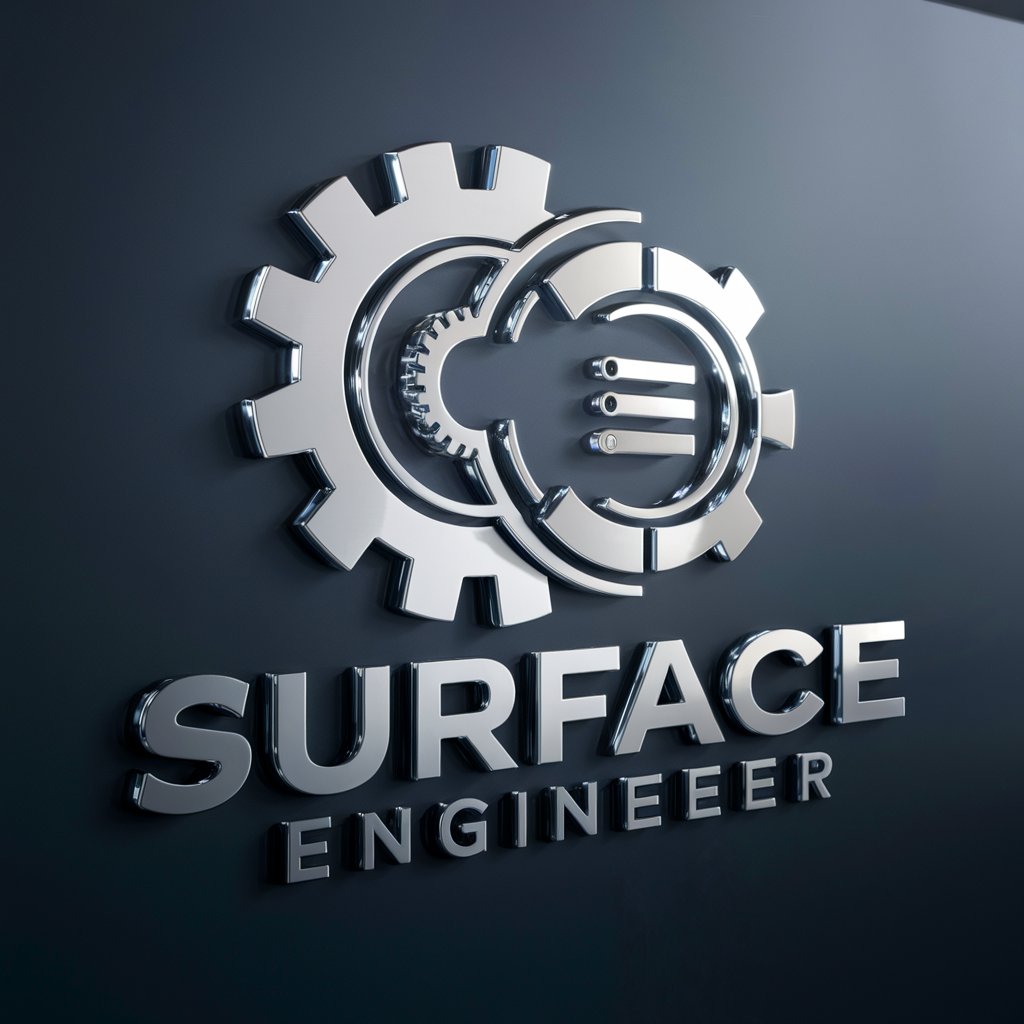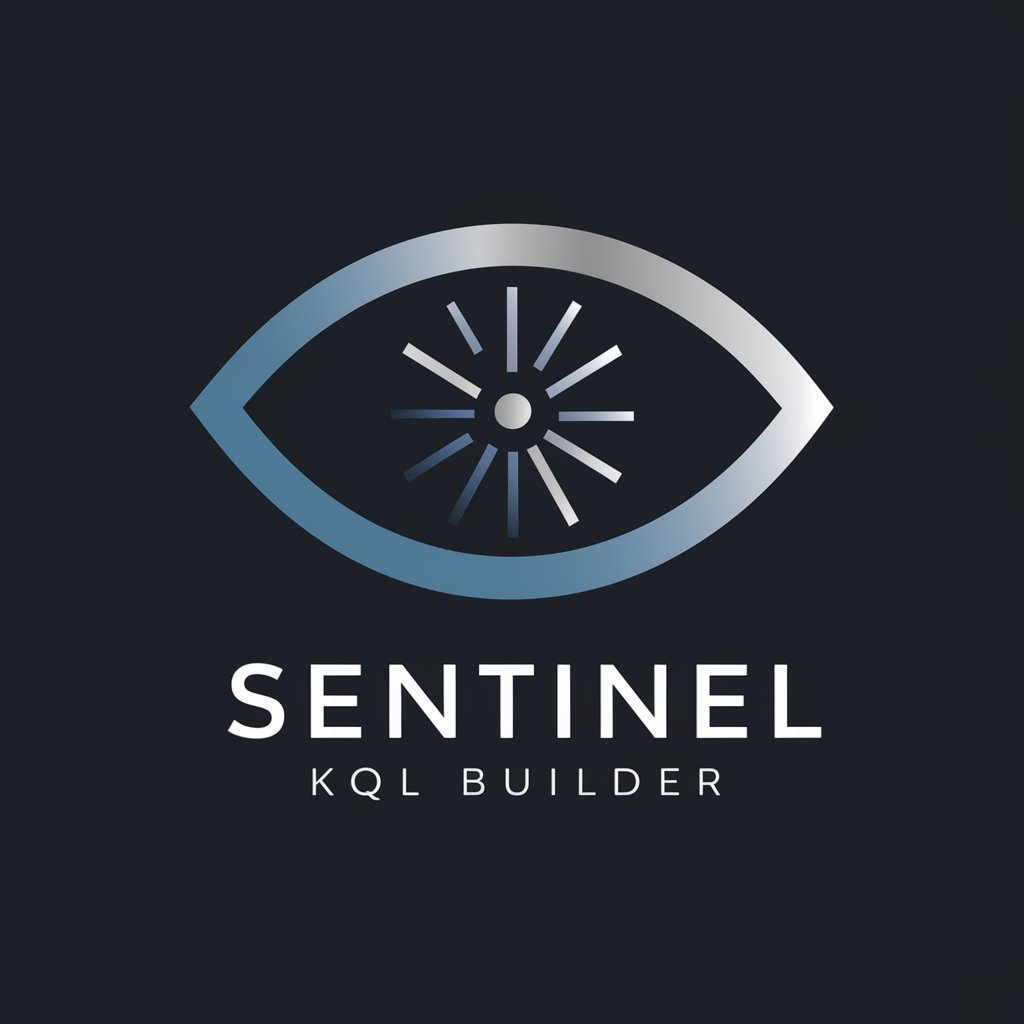Surface Engineer - Surface Engineering AI

Welcome to Surface Engineer, your guide to surface engineering excellence.
Revolutionizing surface engineering with AI
Explain the different types of surface treatments used in engineering.
What are the latest advancements in coating technologies for industrial applications?
How does surface roughness impact material properties in engineering?
Discuss the importance of surface analysis techniques in quality control.
Get Embed Code
Introduction to Surface Engineering
Surface Engineering is a specialized field focused on the design and modification of the outer layer, or surface, of materials to enhance their performance in specific environments or applications. This discipline encompasses a broad range of techniques, including coating, plating, and surface modification processes like heat treatment, to improve properties such as corrosion resistance, wear resistance, hardness, and aesthetic appeal. For example, the aerospace industry relies on surface engineering to apply titanium nitride coatings on engine components, significantly improving their durability and performance in high-temperature environments. Powered by ChatGPT-4o。

Main Functions of Surface Engineering
Corrosion Resistance Enhancement
Example
Applying zinc coatings on steel structures to prevent rust.
Scenario
In marine environments, steel structures are susceptible to rapid corrosion due to salt water. By applying zinc coatings, surface engineers can significantly extend the lifespan of these structures, protecting them against the harsh marine conditions.
Wear Resistance Improvement
Example
Using diamond-like carbon (DLC) coatings on automotive components.
Scenario
Automotive components, such as pistons and gears, are subject to intense friction and wear during operation. DLC coatings provide a hard, lubricious surface that reduces wear, extends the component's life, and improves fuel efficiency.
Aesthetic and Functional Coatings
Example
Electroplating consumer electronics with gold or chrome.
Scenario
Surface engineering is not just about enhancing performance; it also plays a key role in aesthetics. Electroplating consumer electronics with metals like gold or chrome not only improves their appearance but also provides a conductive and corrosion-resistant surface.
Ideal Users of Surface Engineering Services
Manufacturing Industry
Companies involved in the manufacturing of automotive, aerospace, and consumer electronics products benefit significantly from surface engineering. These industries require components with enhanced durability, performance, and aesthetics, all of which can be achieved through advanced surface treatments.
Energy Sector
The energy sector, including oil and gas, renewable energy, and nuclear power, relies on surface engineering to protect equipment from corrosion, wear, and high temperatures, ensuring safety and efficiency in energy production.
Medical Device Manufacturers
Surface engineering is crucial for medical device manufacturers who need to ensure their products are biocompatible, corrosion-resistant, and durable. Techniques such as anodizing and plasma spraying help achieve these properties, meeting strict regulatory standards.

How to Use Surface Engineer
Start your trial
Visit yeschat.ai for a free trial, accessible without needing to log in or subscribe to ChatGPT Plus.
Select your task
Choose the specific engineering task you need assistance with, such as materials analysis, coating selection, or surface treatment process optimization.
Input data
Enter relevant data about your project, including material properties, environmental conditions, and specific engineering requirements.
Run analysis
Utilize the tool’s algorithms to analyze the input data and generate recommendations for surface engineering solutions.
Review results
Examine the proposed solutions, including detailed analyses and potential outcomes, to make informed decisions for your engineering project.
Try other advanced and practical GPTs
HyperNovaDIG
Explore Web Safely with AI Power

Igris - The AI Bro
Chat with AI, like a bro

Sentinel KQL Builder
Streamline security with AI-powered queries

Tarman Art
Inspiring creativity with AI-powered art

Tarean
Empowering creativity and learning with AI

Channel Success Coach
AI-powered guidance for business success

Jesuit Historia LATAM
Explore Jesuit legacy with AI

Asistente Matemático
Master Math with AI

Project Tech Tracker
Streamlining AI Projects with Intelligent Tracking

Chile Labor Insight
Insightful AI-driven labor market analytics.

La Guerra del Pacífico
Discover the War of the Pacific, Powered by AI

Aria
Enhance Instagram with AI-driven Strategy

Questions and Answers about Surface Engineer
What types of engineering projects can Surface Engineer assist with?
Surface Engineer is designed to assist with a variety of projects, including wear resistance improvement, corrosion protection, thermal barrier coatings, and surface treatment for enhanced mechanical properties.
Can Surface Engineer recommend specific materials for my project?
Yes, it can recommend specific materials and coatings based on the input parameters such as operating environment, desired properties, and budget constraints.
How does Surface Engineer integrate with existing engineering workflows?
Surface Engineer can integrate seamlessly with existing workflows by providing data-driven insights and recommendations that complement the expertise of engineering teams.
What is the accuracy of the analysis provided by Surface Engineer?
The accuracy of Surface Engineer’s analysis depends on the quality of the input data and is enhanced by its comprehensive database of materials and processes, as well as advanced modeling algorithms.
Does Surface Engineer offer post-analysis support?
Yes, it provides post-analysis support, including detailed reports, potential implementation strategies, and follow-up consultations for optimal project outcomes.
